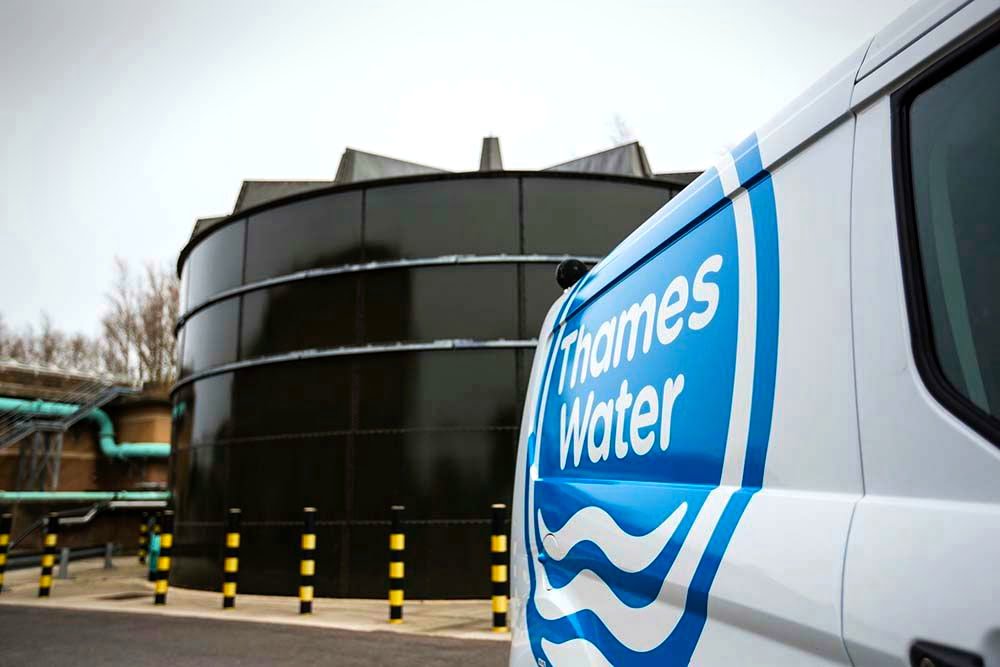To understand the real meaning of the “efficiency” of the private sector, look no further than England’s privatised water supply. A recent study by the University of Greenwich shows that the country’s nine regional water companies are certainly efficient – efficient at lining the pockets of the rich!
Pump the well dry
In 1989, Thatcher and the Tories justified the privatisation of the water and sewerage network on the grounds that it would bring “cheaper bills”, and “much needed investment”. Almost 30 years later, the reality is the opposite.
Instead of bringing money for investment, the private owners have saddled these companies with monstrous debts. The Greenwich study highlights how water companies’ debts have mushroomed from almost nothing (their previous debts were not privatised) to over £42bn.
In fact, these companies pay nearly all of their surpluses out as dividends to their shareholders, rather than use them to re-invest in the network.
The study found that over the past decade the regional water companies made a combined post-tax profit of £18.8 billion. £18.1bn of this has been paid out as dividends to the rich. On average, this means that every household in England – through inflated water bills – has paid £75 a year straight into the bank accounts of the billionaires.
This is the real meaning of “private sector efficiency”! Three of the nine companies even paid more out in dividends than they took in as profits – i.e. they borrowed money to pay fat sums to their shareholders.
Parasites in our water
It is the insatiable drive for profit that explains why nearly all of the money for network improvements has come from an explosion of debt and by jacking up bills.
With privatisation, the water supply has become infected with parasites, such as the nine CEOs who are paid a combined total of £11.3m a year. Their only job has been to pump as much money towards their shareholders, regardless of the impact to the system and the people who use it.
Meanwhile, since privatisation in 1989, household bills have risen by 40% more than inflation. The result is more than 2.5m people now struggling to pay for one of life’s basic necessities. The only people to benefit from this are the company bosses, shareholders, and the bankers collecting interest on the debt.
So as to maximise their debt levels, four of the largest water companies use subsidiaries registered in the Cayman Islands. Furthermore, the tax paid by the water companies is pitiful – averaging 8% over a decade. In some years it is even less. For example, in 2013 the owners extracted a combined £1 billion in dividends from all the companies, but paid only £1 million in taxes. Amazingly, Thames Water, one of the largest of the companies, has paid almost no corporation tax since 2006!
Fix the leak
Sewerage or not, the system stinks! Hence a backlash is developing, which has the capitalists worried.
A recent Legatum Institute study found that 83% of Britons thought that water should be renationalised. This included 76% of Tory voters.
Similarly high levels (over 75%) thought that energy and the railways should be renationalised. Half of those surveyed supported nationalisation of the banks. And this was before the collapse of Carillion, which has put privatisation in the spotlight.
In a desperate bid to reverse this trend, Michael Gove, the Tory minister in charge of water, recently pleaded for the companies to behave in a “responsible fashion”. He implored them to end their use of offshore tax havens.
No amount of asking nicely, however, will change these companies’ and their ways. Their drive for profit above all else is written into the DNA of capitalism.
The Labour Party under Corbyn is therefore correct to promise the renationalisation of the utilities and railways if elected. The supply of such services should cease to be a means for a privileged few to enrich themselves.
We must learn the lessons of the 1945 Labour government, however, if nationalisation is to be successful. As a start, no compensation should be given to the parasites that have ripped us off for decades.
Furthermore, if these services are truly to be run for need, they must be taken out of the profit system entirely.
- Nationalise the utilities and place them under democratic workers’ control. Don’t leave this vital infrastructure in the hands of the former fat-cat directors to manage!
- Take over the other key levers of the economy! Nationalise the banks and big monopolies so that a socialist plan of production can be implemented.
- Appeal to workers in other countries to follow suit! We need a world socialist federation that will end capitalism forever.






